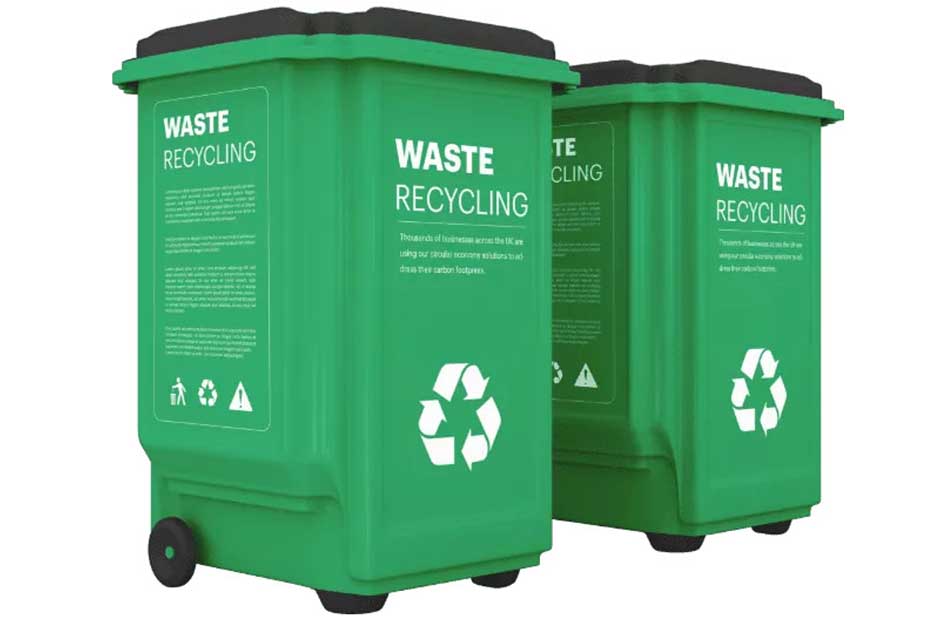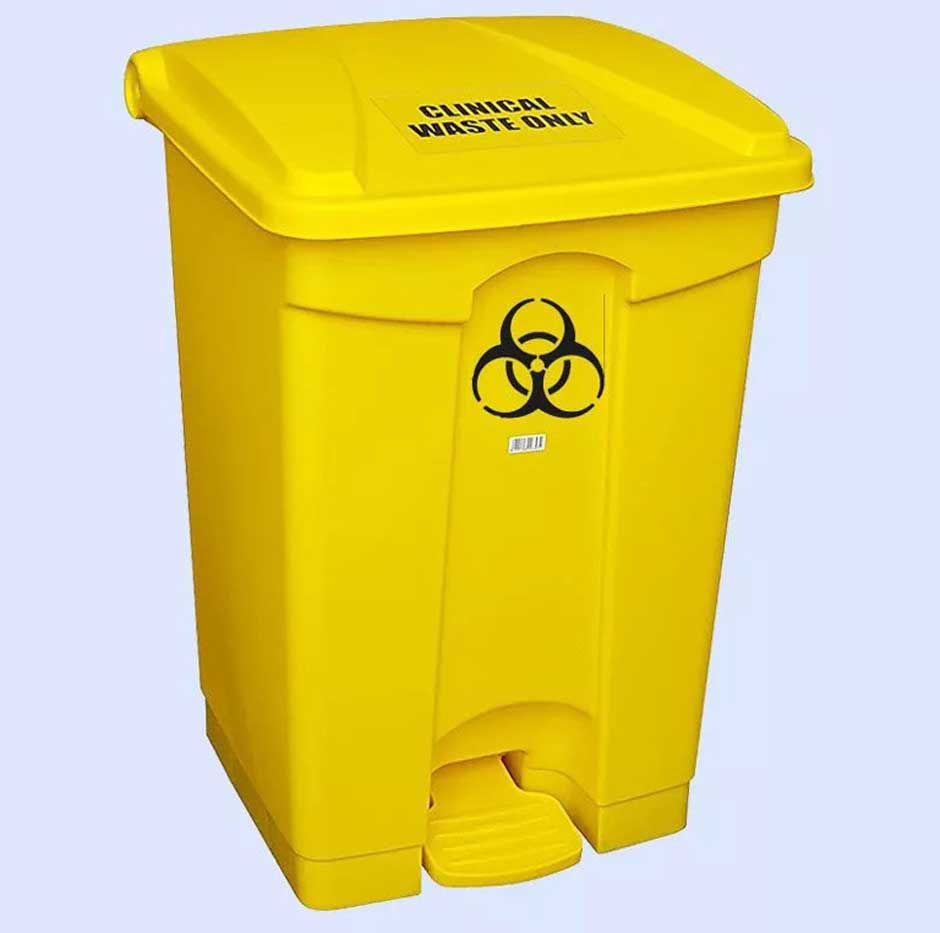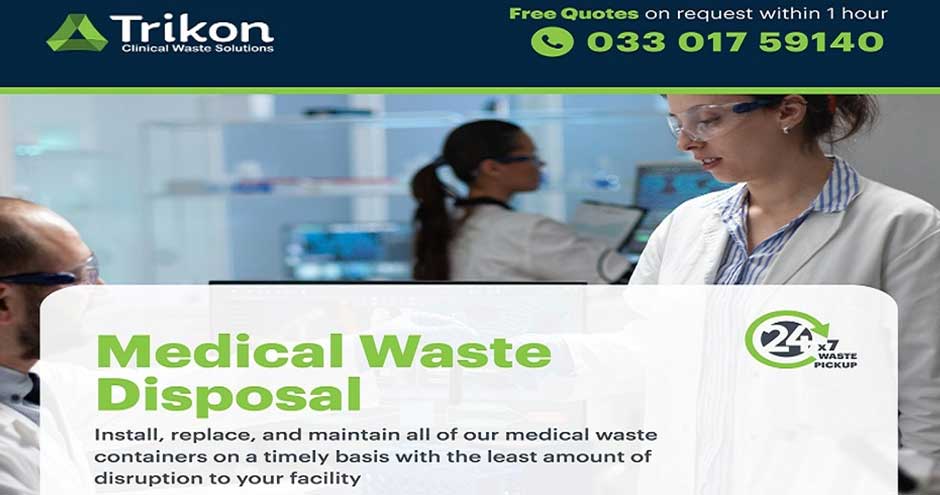Medical waste is a serious issue, yet many of us don’t think about it until there’s a health scare! Clinical waste is defined as any material that might contain potentially infectious substances originating from medical treatments and research. Ever thought about why it is crucial to properly dispose of medical waste? And if not done, what can be the consequences?
Well, to protect your environment and our health, it is really important to work on it. Not only the responsibility must be held by a single individual but many of us should step ahead to make a change for a better, healthier life.

What’s Included in Medical Waste?
Items such as needles, body fluids, syringes to soiled dressings, body parts, diagnostic samples, blood, chemicals, pharmaceuticals, medical devices, and radioactive materials could be hazardous to the public. This unsafe disposal of clinical waste can have serious health problems. It can lead to the spread of disease, contamination of the water supply, and air pollution.
Types of Medical Waste
- Clinical Waste: This is any waste generated as a result of medical or dental treatment, including medicine containers and items such as bandages, swabs, and dressings. Clinical waste must be disposed of in a safe and controlled manner.
- Pathological Waste: This includes any waste produced as a result of diagnosis, testing, or treatment of humans or animals, such as amputated body parts, tissue samples, and laboratory cultures.
- Cytotoxic Waste: This type of medical waste includes chemotherapeutic agents and cytotoxic drugs, which can be hazardous if not disposed of correctly.
- Extremely Hazardous Waste: This type of medical waste includes hazardous materials that can be extremely dangerous if not properly disposed of. This includes radioactive waste, chemotherapeutic agents, and pharmaceuticals.
- Sharps Waste: This is any medical waste that could potentially cause injury, such as needles, blades, and other sharp items. These must be disposed of carefully to avoid injury to the public and staff.
- Pharmaceutical Waste: This includes any unused or expired medications, including prescription drugs and over-the-counter medications.
- Infectious Waste: This type of medical waste includes any items that can pose a potential risk of infection, such as used bandages, gloves and other items contaminated with body fluids.
- Contaminated Waste: This type of medical waste includes items such as lab coats and disposable gowns that have been contaminated with potentially infectious materials. It also includes any waste materials that have been exposed to hazardous materials.
Health Consequences of Clinical Waste & Its Disposal
Countries that have poor hygiene and a high population are adversely affected by medical waste. The impact of improper disposal can cause injury to healthcare personnel who is responsible for handling the waste. What’s more, medical waste is not always easy to identify. Items that are not medical waste can be mistaken for medical waste, or medical waste can be mistakenly disposed of with regular waste, leading to contamination of the environment.
To get rid of infectious diseases, and drug-resistant microorganisms which spread from health facilities into the environment, it is equally important all medical waste be properly segregated and labelled to ensure accurate disposal. To make sure all the medical waste is handled and disposed of safely, having a systematic approach can work wondrously. With different types of medical waste come different methods of disposal. Common medical waste disposal methods include incineration, autoclaving, and disposal in a medical waste landfill.
Sharps, blood, body fluids, and laboratory materials must be disposed of by various methods. Whereas, on the other side- “medical waste must be properly stored until it can be safely and securely disposed of. This includes storing waste in a secure area, away from the general public. And if not taken care of, it can lead to the spread of disease, contamination of the environment, and injury or death to health care personnel.

Enhancing the Health Care Waste Management- The Way Forward
Disposing of medical waste correctly is essential for ensuring public safety, and there are several ways to do this. Clinical waste, which is any waste generated from medical or healthcare activities, should be stored separately from other waste and cannot be disposed of like regular waste, such as through a bin. Instead, all medical waste must be disposed of through a specialist, licensed medical waste disposal company, that provides a collection service. This ensures that all medical waste, such as needles and syringes, is disposed of safely and following the law.
Trikon Clinical Waste- A Helping Hand
At Trikon Clinical Waste, we make sure that disposing of medical waste in the UK is a breeze. We provide reliable and safe collection and disposal services for all types of clinical waste. Our professional staff guarantees that all medical waste is disposed of in a safe and compliant manner. We ensure that all medical waste is collected, transported, and disposed of following the strict regulations set out by the UK government. We also work with some partners to provide a complete medical waste disposal service.
With our commitment to customer service, we make sure that all medical waste is disposed of most effectively and efficiently.

